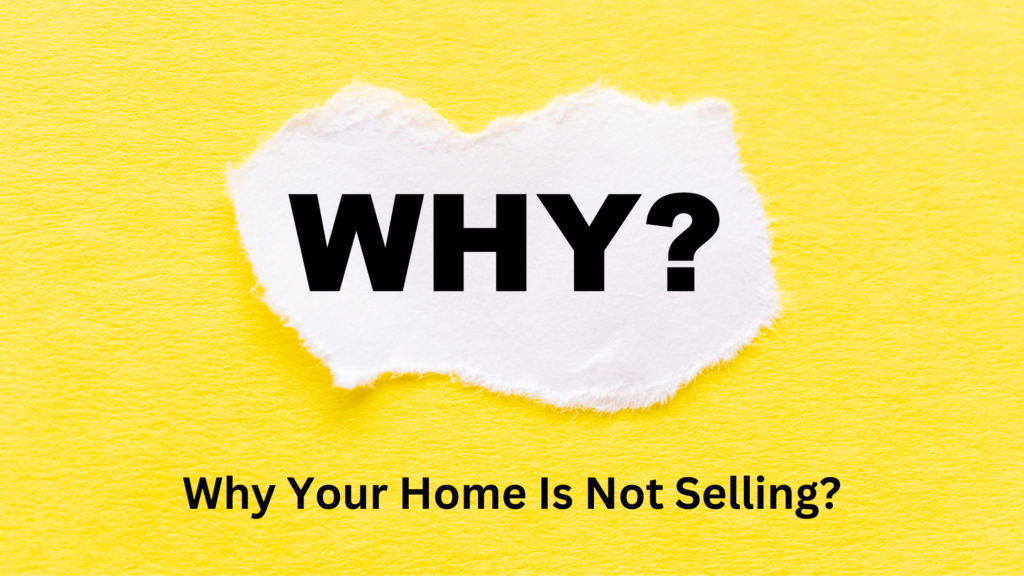
Selling a home is one of the most significant financial decisions most people will ever make. But when a property lingers on the market for 30 to 60 days without attracting serious offers, it can become an overwhelming concern. Whether it’s the economy, the property’s condition, or simply bad timing, understanding why your home isn’t selling is the first step to finding a solution.
In this article, we’ll explore some of the most common reasons why homes in Port Elizabeth fail to sell quickly and offer practical advice to improve your chances of closing the deal.
The Importance of Selling Your Home in Port Elizabeth
Port Elizabeth, now known as Gqeberha, is one of South Africa’s key coastal cities, featuring a diverse real estate market. Properties range from affordable family homes to luxurious coastal estates. However, selling a property here isn’t always easy, and sellers often find themselves frustrated when their homes don’t attract buyers as quickly as expected.
Whether it’s the neighborhood, the price, or market conditions, identifying the root cause of a slow sale is vital to making your home more appealing.
Typical Selling Timeline: What to Expect
On average, homes in Port Elizabeth can take anywhere from a few weeks to several months to sell, depending on factors such as location, market conditions, and property type. While a well-priced and well-presented home in a high-demand neighborhood may sell in 30 days, others can take much longer.
Factors Influencing Sale Time in Different Neighborhoods
Neighborhoods near business centers, good schools, and popular amenities generally experience faster sales. On the other hand, properties in less desirable locations or those far from essential services may take much longer to sell, despite competitive pricing.
Price Too High: The Leading Cause
Pricing is perhaps the most critical factor when selling a home. Setting a price too high is a surefire way to scare off potential buyers. While sellers often feel their home is worth more than market value, buyers are more cautious, especially when comparing homes online.
How to Competitively Price Your Home
Pricing your home competitively involves researching comparable homes in your area, known as “comps.” These are homes similar in size, location, and features that have recently sold. Overpricing your home may lead to it sitting on the market for months without any interest, forcing you to make price reductions later, which can deter buyers further.
Slow Market: Current Economic Conditions
Economic conditions, such as high interest rates or inflation, can significantly impact the real estate market. In recent years, South Africa has experienced rising interest rates, making it more difficult for buyers to obtain mortgages, resulting in fewer buyers and slower sales.
Effects of Global Trends on Local Sales
Global events, such as the COVID-19 pandemic or changes in international trade, can also affect buyer confidence. Buyers may delay their purchasing decisions in uncertain times, which can result in longer sales cycles.
Presentation Issues: Curb Appeal and Staging
First impressions matter. A home that doesn’t catch a buyer’s eye from the moment they pull up may quickly be dismissed. Curb appeal refers to the attractiveness of the property’s exterior, and it’s often the first thing potential buyers notice.
Tips for Interior Staging
Inside the home, proper staging can help buyers visualize themselves living in the space. Declutter, clean, and depersonalize the home by removing family photos and personal belongings. Professional staging can also enhance the home’s appeal, especially in competitive markets.
Location Concerns: Hard-to-Sell Areas
Location is a factor no seller can control. Some neighborhoods naturally attract more buyers due to proximity to schools, work, shopping centers, and recreational areas. Homes in less desirable areas may struggle to generate interest, regardless of their condition or price.
How Proximity to Amenities Affects Buyer Interest
Being close to essential services such as public transport, schools, and shopping malls can make a huge difference in how quickly your home sells. In contrast, homes in remote or less accessible areas may take longer to find the right buyer.
Solutions to Speed Up Your Sale
If your home in Port Elizabeth is struggling to sell, there’s likely a reason—and usually, it’s something that can be fixed. From adjusting the price to enhancing the property’s presentation and understanding market trends, these practical solutions can significantly improve your chances of making a sale.
FAQs:
- Why is my home in Port Elizabeth not selling?
- Common reasons include overpricing, poor presentation, or being in a less desirable location.
- How can I make my home more appealing to buyers?
- Focus on improving curb appeal, declutter, and stage the interior to make it more attractive to potential buyers.
- How do I know if my home is priced too high?
- Compare it to recently sold homes in your area. If it’s priced above similar properties, it might be too high.
- How long does it take to sell a home in Port Elizabeth?
- On average, a well-priced home in a good area can sell within 30 to 60 days, but it can take longer depending on market conditions.
- Can high interest rates affect my home sale?
- Yes, high interest rates can reduce buyer activity, making it harder to sell.
- What should I do if my home isn’t selling?
- Consider lowering the price, improving the property’s condition, or working with a real estate agent to market it better.
